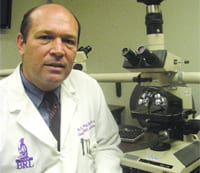Practice Management Decisions, Decisions – How to Make Smart Choices When It Comes to Your Career Path
There comes a time for every physician, young or experienced, when a career path needs to be chosen — or a change in scenery is needed.
This happens for many physicians as they come out of the comfort of residency and look to establish themselves in a particular marketplace. For others, after years of toiling away, it is time to move into a position that is more rewarding and a better fit for their long-term personal and career goals. While some may seek out an ownership track in a private medical practice, others may desire the stability of an employment agreement with a local hospital.
No matter what decision you make and regardless of the point in your career that you are making this decision, there are certain items that should be evaluated to ensure you are making the right choice. This article is aimed at helping to better understand the three primary areas that need to be evaluated and understood in making these decisions: value structure, business operations, and finances.
Value Structure
When deciding which career path to take, too often the primary drivers are compensation and advancement. It is the value structure of the entity, however, that often drives your ultimate fulfillment with the position. Start with gaining an understanding of the history of the entity and its mission. Do these values line up with your current, and future, desires?
Like any job, it is recommended that you meet with some of the key individuals you would be working with to ensure that the stated values are in line with current practice. Finally, make sure that you understand what the five- and 10-year plans are for the entity, to ensure that the future is not expected to bring deviations from these established values.
Business Operations
Once you’ve determined that the values of the entity are in line with yours, it is important to ensure that the day-to-day operations of the business are also in line. What is the current patient base, and how does the community view the practice? Have technological updates, including electronic medical records, been implemented or planned, and are they adequate under the circumstances? How are new patients assigned to physicians, and how is the call schedule divided? Also, who are the decision makers?
While they may seem inconsequential at the time, these questions are all important to ensuring that there are no surprises after being hired.
To the extent that you are considering a private practice with the hopes of becoming an owner, there are additional factors that should be weighed. First, make sure you know how the practice is organized legally. This could have an impact on your exposure from a liability standpoint, as well as have very different outcomes regarding income taxes. Are there related entities, such as real-estate investment companies or ambulatory surgical centers, that the other owners participate in? If so, is there an opportunity for you to buy into these in the future? If not, there may be ancillary revenues left on the table that could impact future income generation.
Financial Considerations
First and foremost, you will want to review some basic financial data for the entity to ensure that it is financially viable and not overly saddled with debt. From a revenue standpoint, collection history and payer mix are critical.
Make note that accounts receivable are not reported on the balance sheet of many practices that may report on a cash basis. As such, this will need to be reviewed independently, with a focus on the aging and days outstanding. While reviewing the financial data, try also to critically consider the need to bring on a new physician and whether or not the entity can support it.
Salary and compensation methodologies, whether as an employed physician or practice owner, can vary from practice to practice. As an employed physician, some practices and organizations will pay a straight salary, while others will include a production bonus if certain targets are exceeded. As an owner, there are many formulas that one may encounter. Some practices will split compensation equally, some will be 100{06cf2b9696b159f874511d23dbc893eb1ac83014175ed30550cfff22781411e5} production-based, and others may offer a hybrid of the two. Additionally, stipends are often provided for administrative duties, such as acting as a medical director or for attending board meetings.
Ultimately, make sure you know what you are worth and that you are comfortable with the compensation methodology being utilized.
Last but certainly not least in the decision-making process is to perform a detailed review of the employment contract. Certain areas all physicians should focus on when reviewing these agreements include non-compete clauses (are they reasonable in terms of duration and distance?), malpractice-insurance coverage (who pays for this expense, including any required tail coverage?), and the criteria for obtaining equity ownership.
To the extent that equity ownership is being offered, this agreement should also spell out the cost to buy in and be bought out of the ownership interest so that there are no inconsistencies when that time should arise. The most important aspect of the agreement is that it is consistent with the offer that was made and is in agreement with how you were sold on the position. It doesn’t matter what was said once the dotted line has been signed.
One final piece of advice is to not make this decision alone. Reach out to your trusted advisors, including your accountant and attorney, to help with the due-diligence process, and discuss your decision with your family, as they will be the ones by your side on the good days and the bad. Making a decision on where to practice medicine is a daunting task, given that it could outline your career for the next 30 years or lead you into peaceful retirement. By doing your homework, this could be one of the most rewarding decisions that you make over your lifetime. v
James T. Krupienski, CPA is senior manager of the Health Care Services Division of Meyers Brothers Kalicka, P.C. He is a member of HCAA, the National CPA Health Care Advisors Assoc.; (413) 536-8510.



